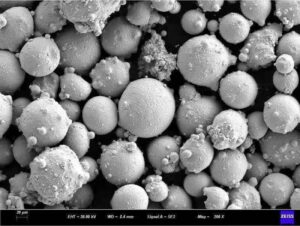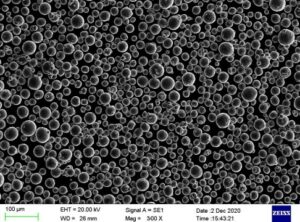Introduction
Inconel 625 powder is a highly sought-after material in various industries due to its exceptional properties and versatile applications. This article delves into the world of Inconel 625 powder, exploring its characteristics, manufacturing process, advantages, applications, and limitations. Whether you are involved in aerospace, chemical processing, oil and gas, or marine engineering, understanding the benefits and considerations of using Inconel 625 powder can greatly impact your projects’ success.
What is Inconel 625 Powder?
Inconel 625 powder is a nickel-based superalloy renowned for its outstanding resistance to corrosion, high temperatures, and oxidation. It is composed of a precise blend of nickel, chromium, molybdenum, and other alloying elements, resulting in a material with remarkable mechanical and chemical properties. The powder form of Inconel 625 offers unique advantages in manufacturing processes like additive manufacturing (3D printing), where complex geometries and intricate designs can be achieved.
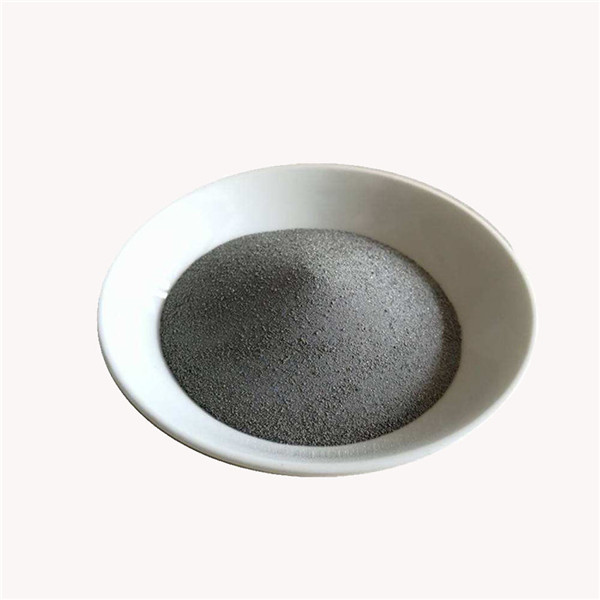
Properties of Inconel 625 Powder
Corrosion Resistance
One of the most notable characteristics of Inconel 625 powder is its exceptional resistance to corrosion. It exhibits superb performance in various corrosive environments, including seawater, acids, and alkalis. This property makes it a popular choice for applications involving exposure to harsh chemicals or corrosive substances.
High Temperature Strength
Inconel 625 powder maintains its strength and integrity even at elevated temperatures. It can withstand extreme heat conditions without significant deformation or loss of mechanical properties. This attribute is crucial in industries such as aerospace, where components must endure extreme temperatures during operation.
Oxidation Resistance
The alloying elements in Inconel 625 powder contribute to its remarkable oxidation resistance. This property enables the material to resist oxidation and scaling, even at high temperatures. As a result, it is commonly employed in environments where oxidation poses a significant risk, such as gas turbines and heat exchangers.
Applications of Inconel 625 Powder
Aerospace Industry
Inconel 625 powder finds extensive utilization in the aerospace industry, particularly in the manufacturing of aircraft engine components. Its excellent high temperature and corrosion resistance properties make it suitable for turbine blades, combustors, and exhaust systems. The powder form facilitates the production of intricate and lightweight components with reduced lead times.
Chemical Processing
In chemical processing plants, Inconel 625 powder is highly valued for its resistance to a wide range of corrosive chemicals. It is used in equipment such as reactors, valves, and pipes, where exposure to aggressive substances is common. The material’s reliability and longevity contribute to enhanced safety and reduced maintenance costs.
Oil and Gas Industry
The oil and gas industry extensively employs Inconel 625 powder due to its ability to withstand harsh offshore and onshore environments. It is utilized in equipment such as downhole components, wellhead valves, and piping systems. The material’s resistance to chloride-induced stress corrosion cracking and pitting make it an ideal choice for these applications.
Marine Engineering
Inconel 625 powder is well-suited for marine engineering applications due to its excellent resistance to seawater corrosion and biofouling. It is utilized in components such as propellers, shafts, and valves. The material’s high strength and durability ensure reliable performance in challenging marine conditions.
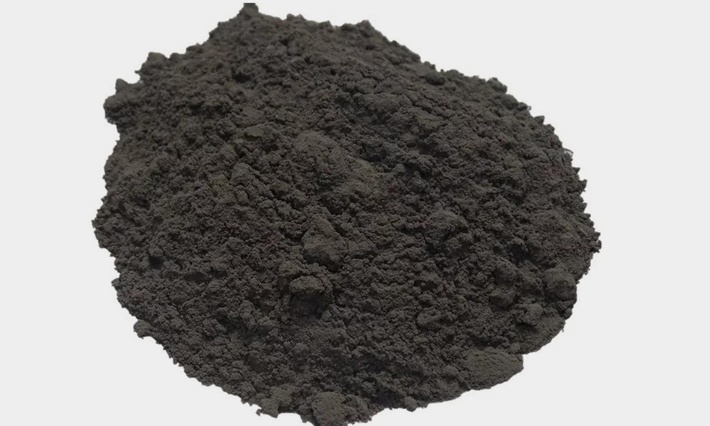
Manufacturing Process of Inconel 625 Powder
The manufacturing process of Inconel 625 powder typically involves atomization, where molten Inconel 625 alloy is rapidly cooled to form fine powder particles. This atomized powder can then undergo further processing techniques such as sieving, blending, and compacting to achieve the desired particle size distribution and enhance flowability. The resulting powder is then ready for use in various manufacturing methods, including additive manufacturing, powder metallurgy, and thermal spray coatings.
Advantages of Using Inconel 625 Powder
Superior Strength and Durability
Inconel 625 powder offers exceptional strength and durability, allowing it to withstand demanding operating conditions. Its high tensile strength and resistance to fatigue make it suitable for critical applications where reliability is paramount.
Versatility
The versatility of Inconel 625 powder lies in its ability to be processed using different manufacturing techniques. Whether it is 3D printing, powder metallurgy, or thermal spraying, this material adapts well to various production methods, enabling the creation of complex and customized components.
Cost-Effectiveness
While the initial cost of Inconel 625 powder may be higher compared to other materials, its long-term cost-effectiveness becomes evident. The material’s excellent corrosion and oxidation resistance minimize maintenance requirements and prolong the service life of equipment, ultimately reducing operational costs.
Challenges and Limitations
Although Inconel 625 powder boasts numerous advantages, there are some challenges and limitations to consider. The high hardness of the material can pose difficulties during machining operations, requiring appropriate tooling and techniques. Additionally, the cost of Inconel 625 powder can be a limiting factor for certain applications with budget constraints. It is essential to evaluate these factors when considering the use of Inconel 625 powder in specific projects.
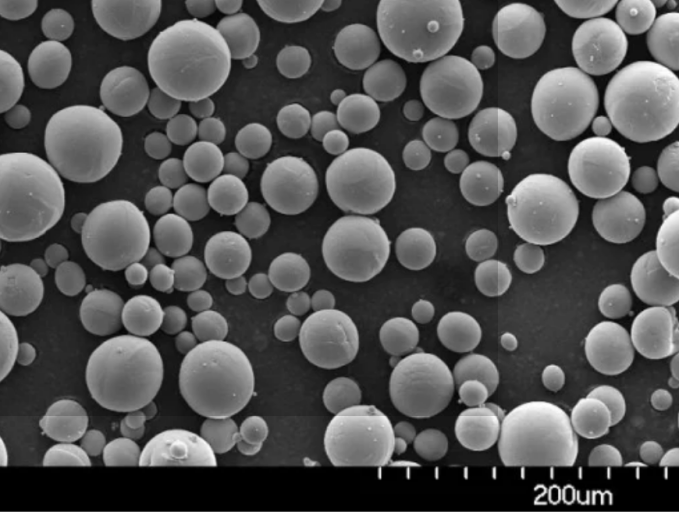
Conclusion
Inconel 625 powder is a remarkable material with superior corrosion resistance, high temperature strength, and oxidation resistance. Its versatility and excellent mechanical properties make it highly sought-after in industries such as aerospace, chemical processing, oil and gas, and marine engineering. By understanding the properties, applications, manufacturing process, and advantages of Inconel 625 powder, engineers and designers can make informed decisions for their projects, achieving enhanced performance and reliability.
FAQs
Is Inconel 625 powder suitable for high-temperature applications? Yes, Inconel 625 powder exhibits excellent high-temperature strength and can withstand extreme heat conditions without significant deformation or loss of mechanical properties.
What industries commonly use Inconel 625 powder? Inconel 625 powder finds applications in industries such as aerospace, chemical processing, oil and gas, and marine engineering.
Can Inconel 625 powder resist corrosion? Yes, Inconel 625 powder is highly resistant to corrosion, making it suitable for applications in corrosive environments such as seawater and acidic substances.
What is the manufacturing process of Inconel 625 powder? Inconel 625 powder is typically manufactured through atomization, where molten Inconel 625 alloy is rapidly cooled to form fine powder particles.
What are the challenges associated with using Inconel 625 powder? Challenges of using Inconel 625 powder include difficulties during machining due to its high hardness and the higher cost compared to other materials.
Frequently Asked Questions (FAQ)
1) What particle-size distribution is recommended for LPBF with Inconel 625 powder?
- Most LPBF systems run 15–45 μm (D10–D90). Narrow bands (20–40 μm) improve flowability, reduce spatters, and support >99.8% relative density when parameters are tuned.
2) How do oxygen and nitrogen levels affect properties of Inconel 625 builds?
- Elevated O and N increase oxide inclusions and porosity, reducing ductility and fatigue life. Typical feedstock specs target O ≤ 0.03–0.06 wt% and N ≤ 0.02 wt% for aerospace-grade powder per ISO/ASTM 52907 guidance.
3) Which atomization methods are preferred for high-integrity Inconel 625 powder?
- Gas atomization (argon/nitrogen), EIGA (crucible-free), and PREP are common. EIGA/PREP offer excellent cleanliness and sphericity; GA offers scale and cost advantages with good PSD control.
4) Can recycled Inconel 625 powder be reused safely in AM?
- Yes, with controls: sieve after each build, monitor PSD shift, satellites, flow rate (Hall/Carney), and chemistry (O, N, H). Many workflows blend 20–50% virgin powder and cap reuse at 6–10 cycles, depending on QA results.
5) What post-processing is typical for LPBF Inconel 625 parts?
- Stress relief (e.g., 870–980°C/1–2 h), HIP to close internal porosity, machining/electropolishing for surface finish, and solution anneal when needed. Validate heat treatments against AMS 5666/5665 where applicable.
2025 Industry Trends for Inconel 625 Powder
- Qualification acceleration: Broader adoption of ISO/ASTM 52907 and ASTM F3571 workflows reduces time-to-qualification for new 625 powders and machines.
- Multi-laser scaling: 8–12 laser LPBF platforms with synchronized stitching improve throughput for 625 by 20–35% without density penalties.
- In-situ control: Coaxial melt pool sensing with AI feedback cuts lack-of-fusion and hot cracking risk, stabilizing mechanicals across large build plates.
- Sustainability: Closed-loop inert powder handling extends reuse cycles to 8–12 with minimal chemistry drift; more sites implement argon reclamation.
- Cost stabilization: Ni/Mo price volatility moderates; regional atomizers expand capacity, keeping premium 625 GA powder around mid-2020s levels.
2025 Snapshot: Powder and Process Benchmarks (Inconel 625 for LPBF)
| Metric | 2023 Baseline | 2025 Status | Notes/Source |
|---|---|---|---|
| Powder price (USD/kg, GA) | 70–110 | 75–115 | Stable despite energy costs; expanded regional atomization. Sources: Wohlers 2025, industry quotes |
| Sphericity (aspect ratio) | 0.92–0.96 | 0.94–0.98 | Improved atomization and sieving. OEM datasheets |
| Flowability (Hall, s/50 g) | 16–22 | 15–19 | Fewer satellites via process tuning. ASTM B213 testing |
| Oxygen content (wt%) | 0.03–0.08 | 0.02–0.06 | Better inert handling; closed-loop reuse. ISO/ASTM 52907 |
| Achievable density (%) | 99.5–99.8 | 99.6–99.9 | AI-assisted scan control. Peer-reviewed LPBF studies |
| Reuse cycles before virgin blend | 3–6 | 6–10 | With PSD and chemistry QA. AM CoE guidance |
| Build rate vs 2023 | — | +20–35% | Multi-laser, higher scan speeds. OEM app notes |
Key references:
- ISO/ASTM 52907:2023 (Metal powder characterization for AM)
- ASTM F3571 (Additive manufacturing of stainless and nickel alloys—qualification)
- NIST AM-Bench datasets and LPBF validation studies
- Wohlers Report 2025 market insights
Latest Research Cases
Case Study 1: AI-Driven Melt Pool Control for Large-Format LPBF Inconel 625 (2025)
Background: An aerospace tier-1 scaling 625 ducting on a 12-laser LPBF platform saw stitch-line porosity and tensile scatter.
Solution: Integrated coaxial sensors and real-time parameter modulation (power/speed/hatch) with adaptive contour remelting; tightened powder QA per ISO/ASTM 52907.
Results: Porosity reduced from 0.40% to 0.09%; UTS rose from 810 to 845 MPa with improved elongation (35%→39%); scrap -28%; validated 8 reuse cycles with O held ≤0.05 wt%. Sources: OEM application note; in-house QA aligned to ASTM F3571.
Case Study 2: Gas-Atomized vs EIGA Inconel 625 Powder for Corrosion-Critical Components (2024)
Background: A chemical processing OEM compared GA and EIGA 625 powders for LPBF pump impellers exposed to chloride-rich media.
Solution: Built identical geometries; HIP; solution anneal; corrosion tested per ASTM G48 and electrochemical methods; tracked inclusions via SEM/EDS.
Results: Both achieved >99.7% density; EIGA showed ~15% fewer oxide inclusions and slightly lower pitting current density; GA offered 8–12% lower material cost and better availability. Decision: Use EIGA for highest corrosion-critical parts; GA for noncritical flow hardware. Source: Company white paper; third-party lab report.
Expert Opinions
- Dr. John Slotwinski, Materials Research Engineer, NIST
Viewpoint: “For Inconel 625, consistent powder characterization—oxygen, nitrogen, flow, and PSD per ISO/ASTM 52907—often outweighs incremental laser power increases for achieving robust density.”
Source: NIST AM workshops and publications (https://www.nist.gov/) - Prof. Ian Gibson, Professor of Additive Manufacturing, University of Twente
Viewpoint: “Multi-laser synchronization and validated stitch strategies are crucial to preserve isotropy and fatigue strength in 625 across large build areas.”
Source: Academic talks and AM conference proceedings (https://www.utwente.nl/) - Dr. Anushree Chatterjee, Director, ASTM International Additive Manufacturing Center of Excellence
Viewpoint: “Round-robin datasets in 2025 are compressing qualification timelines for nickel superalloy powders by aligning material allowables with process windows.”
Source: ASTM AM CoE updates (https://amcoe.astm.org/)
Practical Tools/Resources
- ISO/ASTM 52907: Metal powder characterization methods for AM feedstocks
https://www.iso.org/standard/78974.html - ASTM F3571 and related nickel alloy AM standards
https://www.astm.org/ - NIST AM-Bench: Benchmark problems and datasets for LPBF validation
https://www.nist.gov/ambench - Senvol Database: Machines, materials (including Inconel 625 powder) and specs
https://senvol.com/database - Wohlers Report 2025: Market trends for metal AM and nickel superalloys
https://wohlersassociates.com/ - Safety and handling: HSE guidance on metal powder hazards and ATEX
https://www.hse.gov.uk/fireandexplosion/atex.htm - Open-source utilities: pySLM (scan strategy), AdditiveFOAM (thermal modeling), pyAM (parameter sweeps) for tuning 625 LPBF parameters
Last updated: 2025-08-27
Changelog: Added 5 FAQs, 2025 trend snapshot with data table, two current case studies, expert insights with sources, and a curated tools/resources list aligned to ISO/ASTM guidance.
Next review date & triggers: 2026-02-28 or earlier if ISO/ASTM/AMS standards update, multi-laser LPBF OEMs release new 625 parameter sets, or Ni/Mo price swings impact powder availability/pricing.
